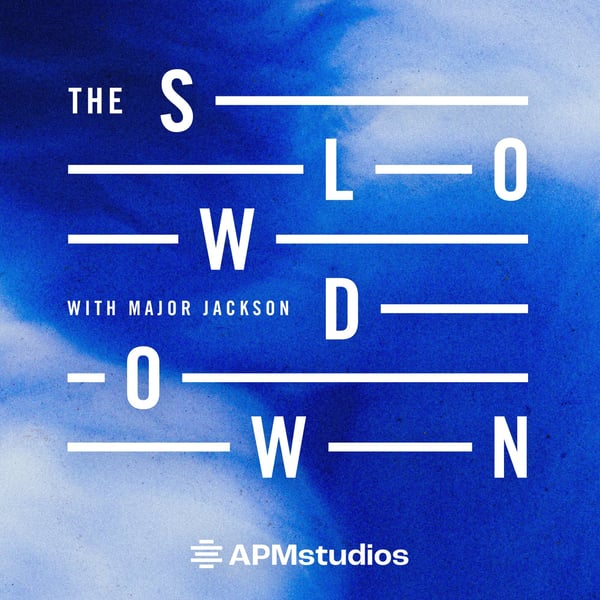1024: Ashes
The Slowdown: Poetry & Reflection Daily
American Public Media
4.8 • 1.2K Ratings
🗓️ 20 December 2023
⏱️ 6 minutes
🧾️ Download transcript
Summary
Today’s poem is Ashes by Rahma O. Jimoh. The Slowdown is your daily poetry ritual.
In this episode, Major writes… “As a poet, how can you write into that catastrophe? How can a poem artfully contain the struggle between the sanctity of nature and the unfettered business practices of corporations that put humans and the environment in harm’s way?”
Celebrate the power of poems with a gift to The Slowdown today. Every donation makes a difference: https://tinyurl.com/rjm4synp
Transcript
Click on a timestamp to play from that location
| 0:00.0 | I'm Major Jackson and this is the slowdown. |
| 0:05.7 | I'm Major Jackson and this is the slowdown. Now. |
| 0:20.5 | The Ohio Department of Natural Resources estimated that 43,000 aquatic animals died as a result of the train derailment and chemical spill earlier this year in the town of East Palestine. |
| 0:35.0 | In the rural community, industrial chemicals affected Leslie Run, Bull Creek and Beaver Creek, |
| 0:42.0 | where scientists sample for dead fish, minnows, invertebrates, and the like, |
| 0:47.0 | using their tools to reckon the scope of the damage. |
| 0:51.0 | When I read this utterly astounding calculation, scrolling my phone over coffee in Starbucks, |
| 0:58.1 | I inappropriately laughed out loud. |
| 1:02.4 | The sight of scores of fish belly up struck me as surreal, as the |
| 1:07.2 | opening scene to an apocalyptic film, or as the triggering image in a poem that wants to raise awareness about harm done to the environment. |
| 1:17.5 | But it was very real. |
| 1:21.5 | After the disaster, a bipartisan group of legislators proposed the Railway Safety Act. |
| 1:28.0 | Norfolk Southern, operator of the railway in East Palestine lobbied to limit the proposed federal safety regulations. |
| 1:37.8 | The basic facts of the derailment lend themselves more to papers and case studies of policymakers and politicals. |
| 1:45.0 | But they're rooted in not only the natural world, |
| 1:49.0 | they're rooted too in the complexity of the human experience. |
| 1:55.0 | As a poet, how can you write into that catastrophe? |
| 1:59.0 | How can a poem artfully contain the struggle between the sanctity of nature and the unfettered business practices of corporations that put humans in the environment in harm's way. |
| 2:12.0 | How does a poet treat the East Palestine incident creatively rather |
| 2:17.6 | than journalistically? You might wish to name and mourn the species of fish lost or meditate upon the cultural symbolism of fish. |
| 2:29.0 | You might begin with an exploratory question, |
| 2:33.4 | such as, what are the rights of the earth |
... |
Please login to see the full transcript.
Disclaimer: The podcast and artwork embedded on this page are from American Public Media, and are the property of its owner and not affiliated with or endorsed by Tapesearch.
Generated transcripts are the property of American Public Media and are distributed freely under the Fair Use doctrine. Transcripts generated by Tapesearch are not guaranteed to be accurate.
Copyright © Tapesearch 2025.

